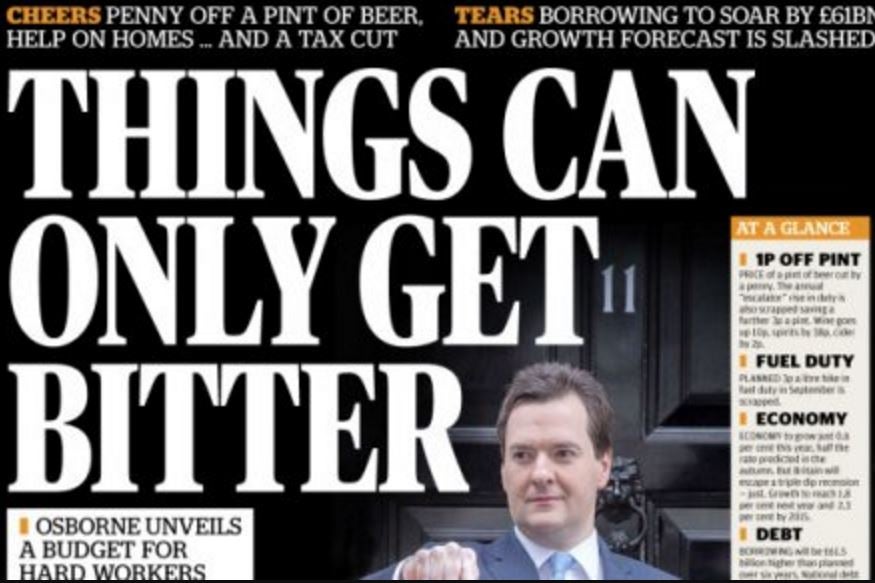
I hope for his sake that former Chancellor George Osborne spends the next two months taking a crash NCTJ course in media law.
Because as editor of the Evening Standard it will be his name over the door from May and he is the one who could be sent to prison or prosecuted and fined if the paper breaches any number of laws from Contempt of Court to the Sexual Offences Amendment Act.
The solemn legal responsibility entailed in editing a newspaper is one of the reasons why editors tend to have considerable, ahem, journalism experience.
Aside from a few months working on the Daily Telegraph diary in 1993, Osborne is a newcomer to the newspaper game.
He knows a thing or two about politics, has a pretty impressive contacts book and is no stranger to the beancounting side of life. So it is not like he is bringing nothing to the role.
But nonetheless his appointment does raise some serious ethical and practical questions:
The Evening Standard’s political independence. Under the Lebedevs’ ownership (since 2009) the Standard has trod more of a middle path ideologically (its sometimes enthusiastic support for Boris Johnson aside). As a free newspaper read by Londoners of every political persuasion how can it continue to appeal to that broad church when the person who decides what it covers and who decides the editorial stance is a serving Conservative MP?
How is the Standard going to cover politics in future without fear or favour (and the Tory election expenses scandal for starters?
How is he going to fit it all in? Editing a daily newspaper is a fairly time-consuming task. Many editors struggle to fit their workload into a 14-hour day. And they are generally people who have already spent decades honing their skills.
Osborne will combine his (£200,000 a year?) role as editor of the Standard with being an MP (£75,000 a year) and being an adviser to investment company Blackrock (£650,000).
How he is going to know what to do? Given his lack of relevant training and experience one has to assume that Osborne will be largely a figure-head with others doing the hands-on editing. To an extent this is fair enough, editors have to delegate.
But when it comes to the big calls, will he be equipped to shout “publish and be damned”? Does he have any news sense? Can he spot a literal? Can he write a headline? Does he have a feel for page design? Can he bring out the best in a team of journalists? Can he spot young writing talent and bring it on? All these things are unknowable. But given his CV to date, the answer to many of these questions is probably, no.
Does he have the ethical backbone to ensure everyone gets a fair crack of the whip in the Standard? Given his outside interests in politics and business it is difficult to see how conflicts are not going to arise on a daily basis. It would be different if Osborne was someone who had hung up his boots politically. But he is clearly leaving his options open with regards to a return to high office, so he won’t want to do anything journalistically which could burn his bridges on doing that.
Despite these concerns, the fact that someone as power-hungry as Osborne is moving into journalism is at least a great a vote of confidence in the ongoing influence of the dead-tree press.
Email pged@pressgazette.co.uk to point out mistakes, provide story tips or send in a letter for publication on our "Letters Page" blog
